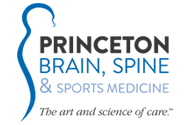Peripheral Nerve Injury
Nerve Entrapment & Peripheral Nerve Injury
Management & Surgical Treatment
While neurosurgeons spend most of their time treating the brain and spinal cord, neurosurgical problems also extend to the peripheral nerves. These cord-containing bundles of nerve fibers carry information to and from the spinal cord. Functioning like telephone cables, peripheral nerves are comprised of tiny axon fibers covered with a tough outer layer. These axons deliver electrical signals. When signals are delayed, interrupted or misinterpreted, patients experience peripheral nerve disorders.
Peripheral Nerve Injury & Healing
Unlike the central nervous system (made of the brain and spinal cord), the peripheral nerves have the ability to regrow into an area of degeneration at an average rate of 1mm/day. Since the process takes months to years to finish, the supplied muscle will weaken and atrophy. Advances in the rate of nerve regrowth are currently being studied, but at this point, there is no single technique that has markedly improved on Mother Nature’s rate of recovery.
Surgical Treatment of Peripheral Nerve Conditions
When conservative management fails, the next step in peripheral nerve treatment may be surgical. Worsening neurologic function and quality of life changes are also universal reasons to consider surgery. Incisions can be made in a minimally invasive way with little to no scar formation, and interoperative magnification has drastically improved surgical techniques and outcomes. Though peripheral nerve problems are rarely considered emergencies, they warrant careful, step-by-step evaluation.
Why Choose Princeton Brian & Spine Neurosurgeons?
The team at PBSSM provides comprehensive treatment for peripheral nerve injuries, including conservative medical management, physical therapy, nerve decompression surgeries and more. To request a consultation for peripheral nerve symptoms, contact our PA or NJ offices online or by calling 609.921.9001 (NJ) or 215.741.3141 (PA).
Request an Appointment
Submit an appointment request on our patient portal or contact our New Jersey and Pennsylvania campuses to speak with a patient advocate.
